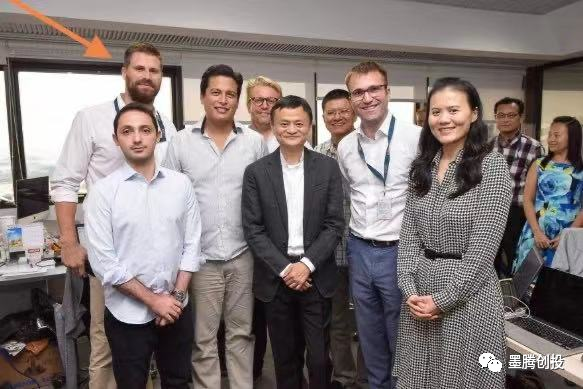Second-hand luxury goods e-commerce.
Editor’s note: This article from the micro-channel public number “Teng Venture ink” (ID: MomentumWorks), of: Yusuf.
In the 2012-2016 era when Lazada was still the leader of e-commerce in Southeast Asia, the every move of its founders was also the focus of many entrepreneurs. Although in the following years it was Maximilian Bittner (hereinafter collectively referred to as Max) and Peng Long (Pierre Poignant) who have successively become former CEOs, these two former comrades-in-arms have once again embarked on an entrepreneurial journey.
(Left: Maximilian Bittner, Right: Peng Long)
The background of the two founders
After graduating from the University of London, Max worked as an investment banking analyst at Morgan Stanley; then he went to Northwestern University’s Kellogg School of Management to read an MBA and joined McKinsey after graduation. Later, through his family relationship, he joined Rocket Internet, which was doing its best in Southeast Asia at that time, to form Lazada and lead the business in six countries in Southeast Asia at that time.
Peng Long also joined and formed Lazada in 2012 after coming out of McKinsey. Unlike the “grumpy” Max, Peng Long has a good reputation and popularity in Lazada for 8 years, and he is also well-received. Many people appreciate Lazada.
Second Entrepreneurship
Peng Long published a hero post expansion team for his startup on LinkedIn in January this year. In February, he disclosed that his FBA platform Brand received a $150 million investment led by Target Global to focus on acquiring Amazon sellers.
Today, as early as 2019 due toMax, who left Lazada to work as a second-hand luxury e-commerce platform for Alibaba executives, announced on LinkedIn that Vestiaire Collective has completed a financing of 178 million euros and successfully promoted to a unicorn. New investors include Kering Group (Kering Group). ) And TigerGlobal Management.
King Group is one of the well-known French luxury goods groups, formerly referred to as PPR Group (Pinault-Printemps-Redoute), officially changed its name to Kering Group in 2013, and its brands include Gucci, Balenciaga and other luxury brands. Recognized by established luxury goods groups, it can be seen that Vestiaire Collective has made rapid progress in the past two years. According to the Financial Times, Vestiaire Collective has increased its transaction volume by more than 100% in the past year.
Peng Long, a former comrade-in-arms, also sent congratulations immediately, and also mentioned that this is already the second unicorn company created by Max.
Vestiaire Collective was established in France as early as 2009 and has 11 million members from more than 50 countries. Having experienced the vigorous development of second-hand luxury goods websites in Europe and the United States, and witnessed the tragic fate of its peer InstantLuxe being acquired by Galeries Lafayette and being closed at the end of 2018, perhaps it is this sense of crisis that made it bring Max into charge in 2019. E-commerce and expansion of emerging markets.
At least for the time being, it took two years to turn it into a unicorn, which is already a good phased result for a company that has gone through 12 years.
Max’s post did not forget to mention Vestiaire Collective’s recent strategy-to reduce waste caused by clothing with the goal of sustainable development and environmental protection, and cooperate with Alexander McQueen to promote the recycling and reuse of clothing and other commodities. -After all, these words are loved by contemporary Westernerslisten.
This also fits well with the European and American markets where the second-hand luxury goods industry is relatively mature and generally environmentally conscious. But even in 2021, we still think it is very difficult for Max to introduce Vestiaire Collective into emerging markets such as Asia.




